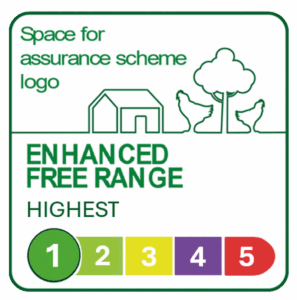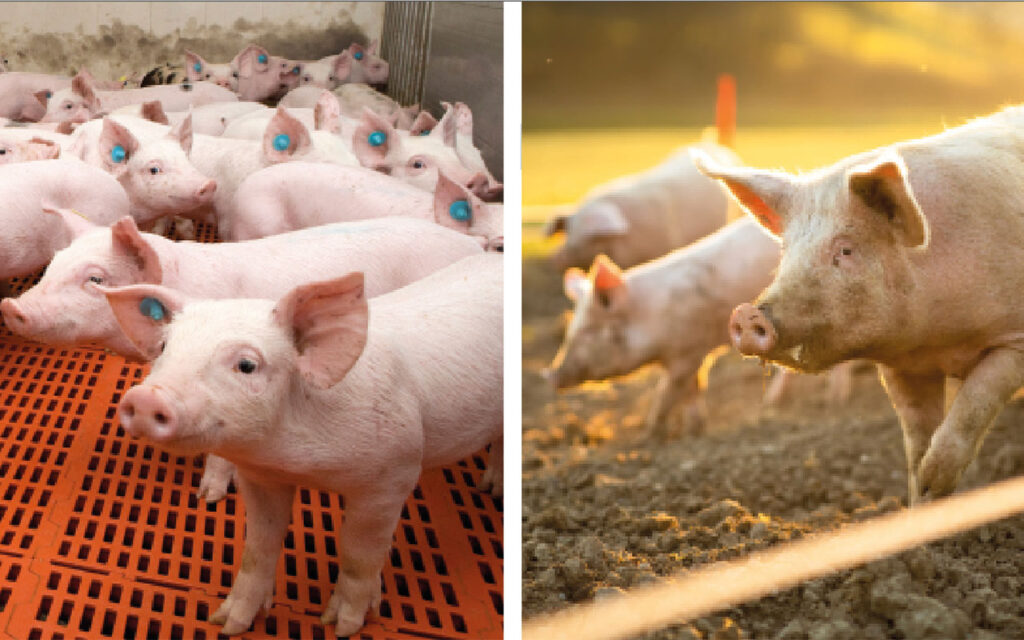Defra is considering responses to a consultation launched by the previous government on reforming food labelling laws.
In doing so, it will need to weigh up the value of the sheer weight of numbers, when it comes to responses, versus some of the reasoned argument put forward by industry, in particular reflecting concerns over plans for method-of-production (MOP) labelling.
The consultation, launched in March 2024 before being put on hold by the general election, covered both country-of-origin (COP) labelling and the far more contentious MOP labelling. The government has now published the responses.
The first thing that jumps out is the impact of email campaigns run by NGOs. A total of 31,011 responses were received, of which 30,837 were from individuals and 174 organisations.
Defra acknowledges that more than 90% of responses, many using standardised text, were generated from co-ordinated campaigns by RSPCA, Compassion in World Farming, Feedback Global and the Humane League.
MOP labelling
The MOP proposals covered all unprocessed pork, chicken and egg products and certain prepacked and loose minimally processed products.
The proposals set out a five-tier system, which for pork could look like:
1) Highest: Free-range
2) High: Outdoor-bred
3) Improved: Enhanced indoor
4) Standard: Indoor (baseline UK regs)
5) Unclassified: Non-UK standard.
As a result of the NGO campaigns, a headline figure of ‘over 99% of individuals’, along with 69% of organisations, supported mandatory MOP labelling.

The document reported that those who were supportive cited the potential benefits for animal welfare, consumer transparency and farmers meeting or exceeding baseline UK welfare regulations.
Those who disagreed with a mandatory approach, including ‘many from industry’, argued that the current industry-led labelling is sufficient, while some expressed concerns about the potential costs and complexity of mandatory labelling.
Much of the argument comes down to the merits of using inputs, mainly systems of production, versus outcomes to measure welfare. Respondents who supported basing standards on inputs suggested they are simpler to monitor and, therefore, provide a more objective measure of the conditions in which animals are reared.
Some NGOs argued that inputs are a key determinant of welfare as they describe the physical environment in which animals are reared, and therefore the ‘welfare potential’ of a system, as well being simpler for consumers to understand than outcomes.
Some respondents also cited issues with monitoring welfare outcomes and the increased inspection burden on farmers.
But some respondents firmly disagreed, suggesting that outcomes are a better indicator of welfare.
‘Those from industry’, including the NPA and others, argued that outcomes are not necessarily dependent on the production system, citing examples of indoor systems that can achieve higher outcomes than outdoor systems. Relying purely on inputs could provide a misleading measure of welfare to consumers.
Some respondents suggested that standards incorporating both inputs and outcomes should be developed over time, when there is a ‘standardised and practical approach available’.
There was strong support from across all sectors for mandatory MOP labelling to apply to domestic and imported products.
The government said, having considered all the responses to this and a 2021 call for evidence, that it recognised the ‘strong support’ for the provision of clearer information for consumers on the welfare standards of their food, adding that it ‘will consider all views as we go forwards’.
COO labelling
The consultation revealed general support, including from industry, for changes to mandatory COO rules, including strong support for the proposal to extend mandatory origin labelling to ‘minimally processed’ meat products, including sausages, bacon and ham.
There was also strong agreement that the use of flags on food needs to be better regulated and clearer.
Some respondents emphasised the need for more effective enforcement of existing COO rules, including a consistent, standardised, UK-wide approach.
Some respondents argued, however, that changing COO rules would add complexity and unnecessary costs to the supply chain, and that voluntary country-of-origin schemes and current regulations are sufficient.
The government said it ‘noted the support of the majority of respondents for informative origin information, alongside the risks and barriers that have been raised’.




